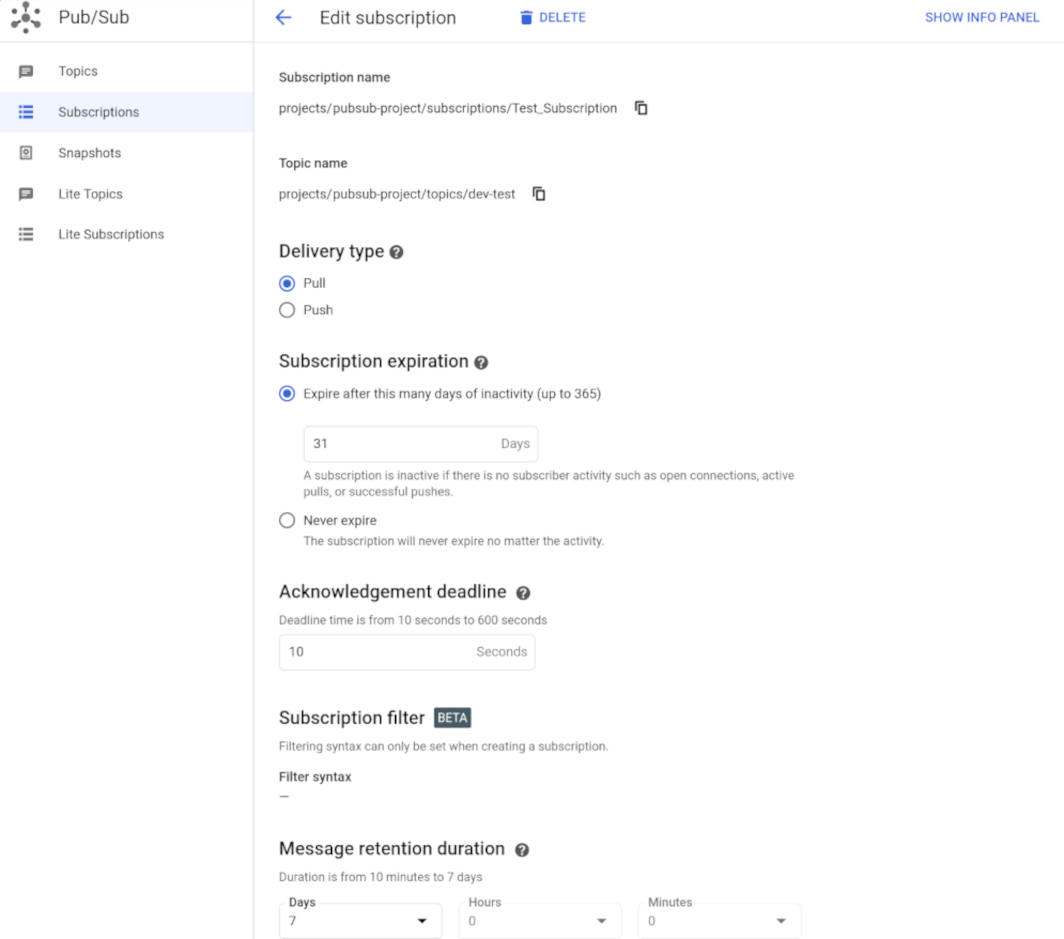From version 7.0.22, syslog-ng Premium Edition (syslog-ng PE) can collect messages from the Google Pub/Sub messaging service using the google-pubsub() source.
NOTE: The rest of this section and its subsections assume that you are familiar with the Google Pub/Sub messaging service, and its concepts and terminology.
For more information about Google Pub/Sub's messaging service, see What Is Pub/Sub?.
For more information about setting up your Google Pub/Sub messaging service system, see Quickstart: building a functioning Pub/Sub system.
For more information about how the syslog-ng PE application sends logs to the Google Pub/Sub messaging service through the google_pubsub() destination, see google_pubsub(): Sending logs to the Google Cloud Pub/Sub messaging service.
|
|
Caution:
This is a Preview Feature, which provides an insight to planned enhancements to functionality in the product. Consider this Preview Feature a work in progress, as it may not represent the final design and functionality. This feature has completed QA release testing, but its full impact on production systems has not been determined yet, and potential future changes in functionality and the user interface may result in compatibility issues in your current settings. One Identity recommends the following:
However, you are welcome to try this feature and if you have any feedback, Contact One Identity. Support Policy on Product Preview Features The One Identity Support Team will:
|


